NI Troubles: Coveney expresses concern about Troubles bill
- Published
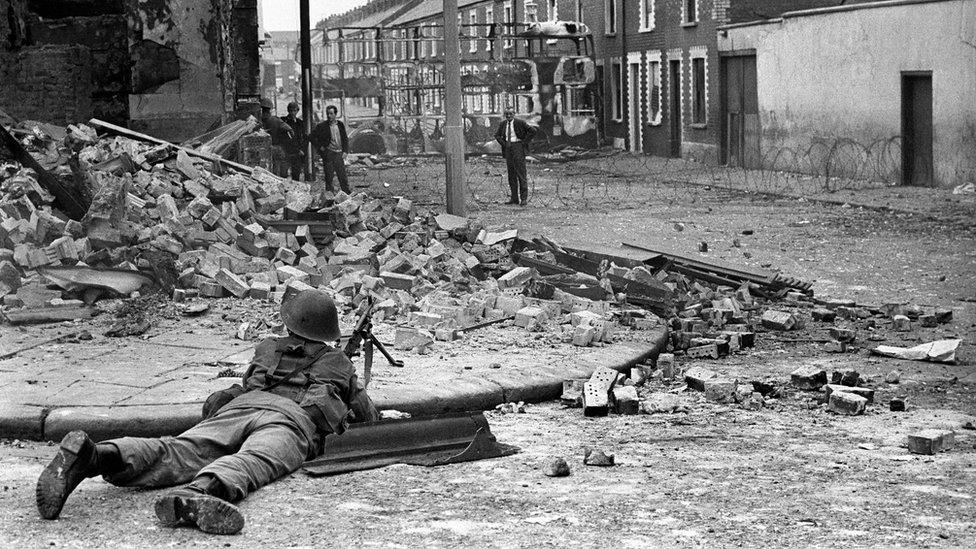
Legislation introduced to deal with legacy issues related to the Northern Ireland Troubles is a cause for "serious concern", Ireland's foreign affairs minister has said.
The UK government bill involves immunity from prosecution for those who co-operate with investigations.
It also prevents future inquests and civil actions related to the Troubles.
Simon Coveney said the Irish government cannot support the bill "in its current form".
Earlier, the commissioner for victims and survivors said the legislation would remove the opportunity for justice for some victims.
Ian Jeffers said this was "a very bitter pill to swallow".
"Everybody recognises it's 40 years, it's 50 years, the chances of a conviction are very slim," he told BBC Radio Ulster's Good Morning Ulster programme.
"But if you've lost your mother or your son are you going to genuinely give that up?
"I think that's the big issue we've got to talk through with victims and survivors over the coming weeks."
What does the new legislation say?
The 100-page Northern Ireland Troubles (Legacy and Reconciliation) Bill sets out investigations run by a new information recovery body.
The Independent Commission for Reconciliation and Information Recovery (ICRIR) will be headed by a judicial figure appointed by the government and would be operational for five years.
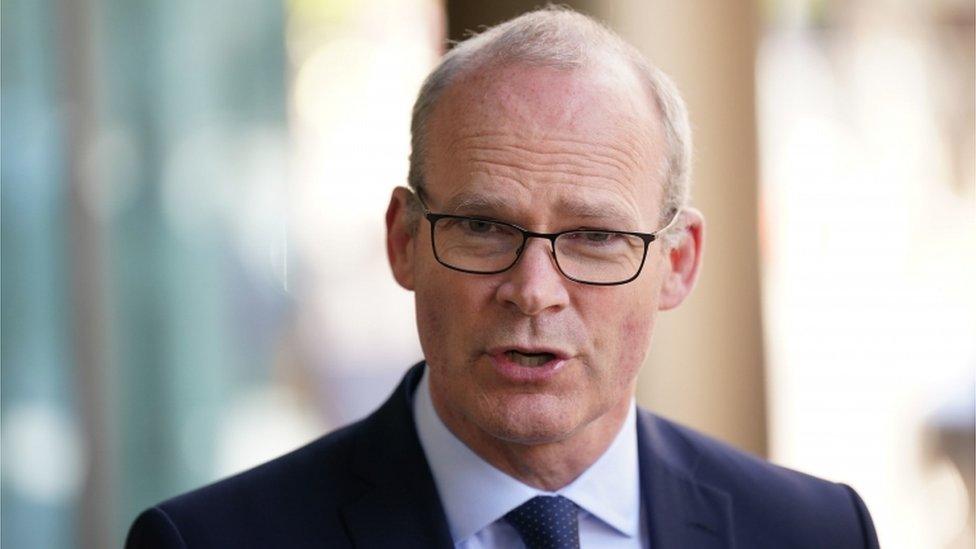
Simon Coveney said the Irish government could not support the proposals in their current form
The panel within ICRIR will decide if a perpetrator qualifies for immunity.
Civil claims which already existed on or before the day of the bill's introduction will be allowed to continue.
Inquests which have reached substantive hearing stage a year after the bill, or by the time the ICRIR becomes operational, can also go ahead.
Sandra Peake, chief executive of victims' group Wave Trauma Centre, said the families of victims wanted fairness and equity.
"Ultimately what they want to know is that their loved one's life mattered and that there has been a full process to account for that," she told Good Morning Ulster.
Speaking about the issue of immunity for perpetrators she said: "Why is murder in relation to the Troubles different to murder undertaken in the streets of London?
"We have families who continue to be jeered at, sneered at and winked at by those responsible for their loved ones murders."
In a statement issued on Wednesday, Mr Coveney said: "It is disappointing that the UK Government have chosen to unilaterally introduce legislation, when our starting point was the need for an agreement to be reached between both governments and the parties, and with the needs of victims and survivors at the heart of the process".
The minister said he had concerns about the powers of the commission, the status of 'reviews' proposed in the bill and its compliance with European Convention on Human Rights.
"We will continue to engage with the UK Government, at all levels, to better understand the provisions of this bill and the policy intent, but at this initial stage, I have serious concerns and cannot support it in its current form," he continued.
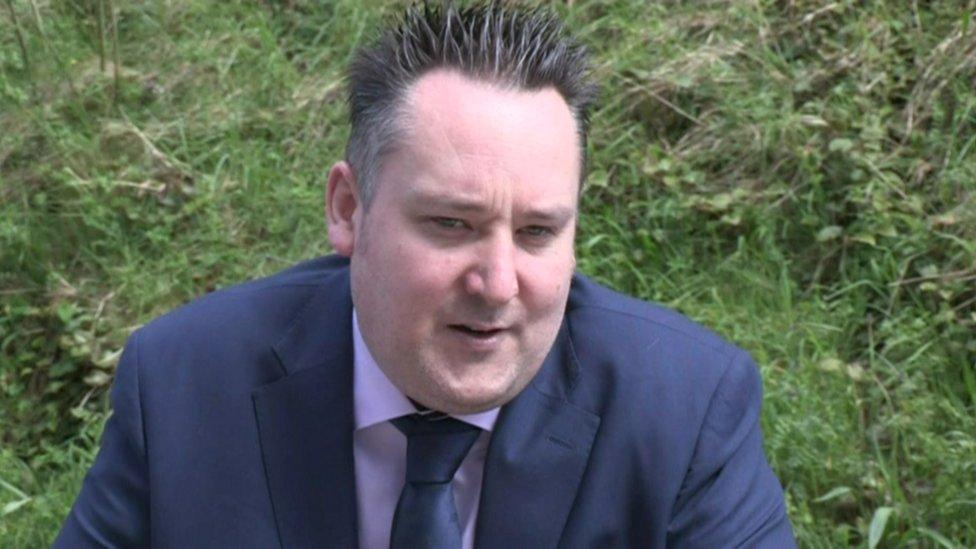
Kenny Donaldson from Innocent Vicitims United
Kenny Donaldson from Innocent Victims United, which represents 12,500 families in Northern Ireland, said victims and survivors are being asked to "be party to the effective closing off of the past".
"That is a huge ask for people who have already suffered so grievously," he added.
Helen Deery, whose 15-year-old brother Manus was with a group of friends when he was shot in the head by a soldier from an observation post on Londonderry's walls in May 1972, said his death was still "heartbreaking".
A coroner ruled in 2017 that he was "totally innocent" and did not pose a threat to anyone.
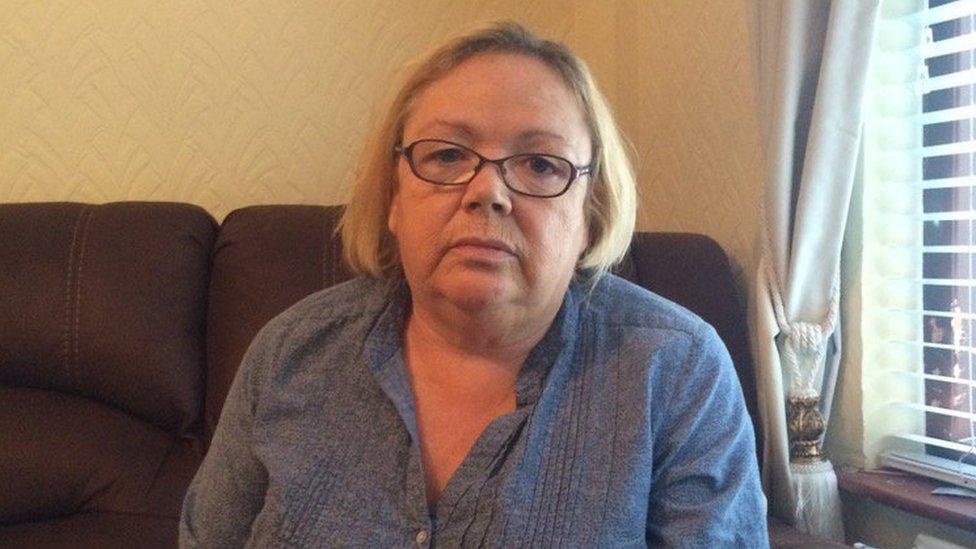
Helen Deery, whose brother Manus was shot and killed by a soldier in 1972, said the new law was disgusting
"I feel the exact same way today as the day he died. I won't rest until we get justice," she told BBC Radio Foyle.
"There is absolutely nothing in it (the bill) for victims."
Ms Deery added: "We have never been consulted on anything. I think it is disgusting."
'A step in the right direction'
Veterans' Commissioner Danny Kinahan said he believed the legislation was "a step in the right direction".
"It is going to be difficult, we are never going to please everybody we have a system that doesn't work," he told Good Morning Ulster.
"We had to find a way where families and veterans' families are as important as everyone else and they want to know what happened.
"They also want a chance for justice."
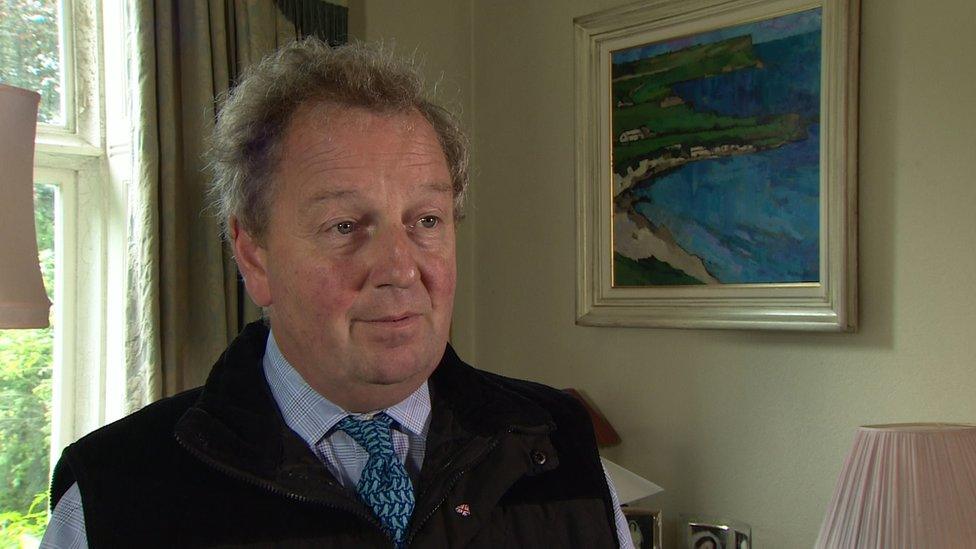
Veterans' Commissioner Danny Kinahan said soldiers would want to give evidence to a new information recovery body
Mr Kinahan said he was confident that soldiers "want to come forward" and provide information to the ICRIR.
"They want to show they did nothing wrong, they want to follow the rule of law, most importantly they want society to realise what they want through, what they did.
"They went out there, they stopped terrorism, they stopped a civil war and, in many cases, they find themselves being demonised.
"They want to go in there, give evidence, show they did nothing wrong."